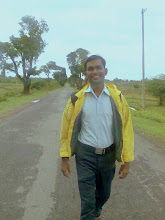Agriculture is a major source of employment for the Indian economy. Historical studies reveal that agriculture has had a major impact in the rise and fall of the Indian civilization. At present nearly 65% of the total population is dependent upon agriculture. Indian farmers grow all types of crops. India has achieved self sufficiency in the production of many crops. This means that India has an influential status in international trade and commerce.
Module Description
This module describes the importance of agriculture in India. The impact of climate change on the entire population is an important issue. Due to the intervention of modern technology in agriculture farmers are highly dependent on machines, chemicals and pesticides. However, improper use of these materials is harmful to crops and the health of the farmers. The ultimate solution for this problem is the proper and effective use of technology coupled with an organic farming system together. The AME Foundation has developed a unique model of sustainable agriculture and it is being implemented in Andra Pradesh, Tamil Nadu and Karnataka. Natural Resource Management (NRM) and Less External Intervention for Sustainable Agriculture (LEISA) projects are very helpful for implementing integrated farming.
During the session the instructor started with the status of agriculture in India and its prominent position in India. The instructor initially emphasized the evolution of agriculture and its development through various stages. The instructor spoke about the green revolution and its impact on farmers and on the Indian economy. The important topic which covered was global warming (climate change). At the same time the resource person explained about the AME Foundation and its approach to develop a sustainable agriculture model. The impact of chemicals and fertilizers on land and on the health of farmers is very hazardous. Techniques such as NRM and LEISA are the approaches which are developed by the AME Foundation and promoting farmers to practice integrated farming system and use livestock in agricultural activities.
Key Points of the module
Agriculture in India is a livelihood system because farmers are struggle hard to grow crops for their domestic use. Indian farmers are not in a position to produce agriculture goods on a large scale. They don’t have proper access to the market place. In this situation nobody can say agriculture is a business model for the majority of farmers. Only a few farmers are aware of forward linkages which can help them make agriculture into a more profitable entrepreneurial model.
People who are involved in the development of the agriculture sector are searching for alternative practices. At the same time farmers are also in need of best practices which will increase the production level. Agriculture has a large scope for development organizations. These organizations must enhance the capacities of farmers by educating them about the proper use of technology, seeds, chemicals and pesticides, etc. At the same time their participation in collaborative learning and its adoption should take place. This means that farmers should come forward and use the new approaches in farming. The developmental approach should enhance the participation of farmers in the process.
The farmers should effectively utilize the natural resources which are readily available in and around their environment. By doing this the farmers can reduce expenditure and increase fertility. Ultimately, yield will increase which should lead to greater income and profit.
Major Learning
The module on agriculture helped me to learn about the importance of the agriculture sector in India. In spite of government support its growth is not up to expectations. The sector’s contribution to the Gross domestic product (GDP) of India is decreasing every year. Due to many factors agriculture has become only a livelihood option for majority of the Indian population. Consequently each year thousands of farmers are committing suicide because they fear a loss of status and respect. It is a very unfortunate trend that is happening in India.






No comments:
Post a Comment
Note: Only a member of this blog may post a comment.